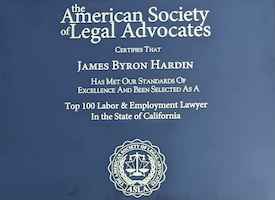Bonuses and Commissions
In many cases, companies will protect their financial interests above all else. This can often cause issues for employees, especially ones that earn a significant portion of their wages from commissions and bonuses. All employees have a right to be paid what they have earned. Fortunately, in the state of California there are laws in place that protect against the unlawful withholding of bonuses and commissions.
Understanding your rights as an employee with respect to commission and bonuses is critical in order to ensure you are treated fairly. Section 2751 in the California Labor Code requires that all commission and bonus plans should be in writing, if your employer never presented a plan to you in the form of a contract then your rights are being violated.
Understanding Your Rights
As an employee that earns commissions and bonuses as a main source of income, it is imperative that you understand how and when you should expect to receive what you have earned. An employee can receive a commission in a few different ways such as, but not limited to:
- When an employee secures a client or customer;
- When an employer receives payment a purchase;
- When an employee issues an invoice;
- When an employee receives a purchase order.
Two questions that often come up with respect to commission are, what happens if the purchase is returned or even what happens if more than one employee worked on achieving the sale? For the first question, there should be an outline listed within your employment contract that details what happens if an item purchased is returned. If this is not the case, then this is a violation of rules set forth by the California Labor Code. If you are wondering about how commission works with respect to two individuals making a sale, this concern should also be present in your employment contract. However, if there is no language designating how a commission should be split in the instance that two employees make a sale, then this is something you should speak to your employer about as this violates your rights.
When to Expect Your Commissions and Bonuses
With commissions and bonuses frequently making up the majority of an employee’s paycheck, it is important that they are paid in a timely manner. According to the California Labor Code, commissions and bonuses earned should be paid at least twice a month. However, in most cases the terms of payment are outlined in the employment contract signed at the beginning of employment.
If your employer has not paid you the commissions or bonuses that you have earned, then there are legal remedies available to you. As an employee, you have rights and late commission payments, or even failure of payment can have serious ramifications in your life. A step that can be taken if you feel as though your employer is withholding funds is to file a wage claim with California’s Division of Labor Standards Enforcement (DLSE). The DLSE sets forth clear and simple guidelines to assist employees trying to file a claim against their employer. Often times individuals are hesitant to file a claim against their employer in fear of retaliation, however there are rules both on the federal and state level that protect employees from retaliation firings.





















